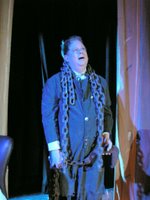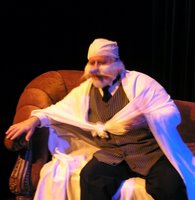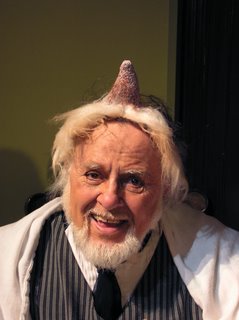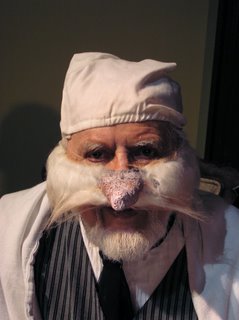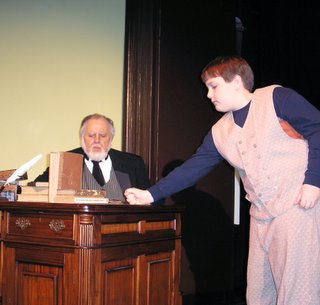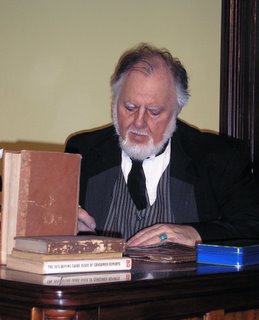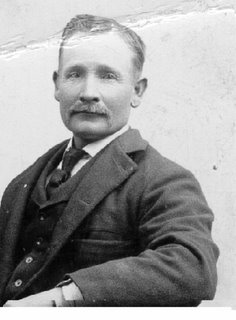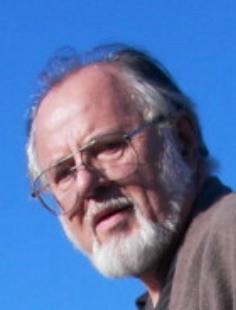Automotive adventures, part I
I was scanning my favorite blogs awhile ago, and came across one on Thotman (I spent twenty minutes making a link here and couldn't get the program to accept my html, so if you want to read the post, go down to the blogroll and click) brought back real memories. One of his family had had a collision with a large cow, and both the cow and the car (but thankfully not the people) came out somewhat the worse for the collision. It brought to mind some of my own automotive adventures. One of these, was a confrontation between myself, my car, and a Hereford bull, and I told that story as a comment on his blog. This led to contemplation of other automotive adventures, so I felt that I really wanted to tell, what I think was the first of my real automotive adventures.
The summer between my Junior and Senior years in High school was one of the first “put yourself on the line, start early, end late and work your buns off jobs that I ever had. Just before school let out, I started looking for a job, and the manager of the Idaho Concrete Product Plant in Pocatello just happened to mention to my dad, at some kind of Stake Bishopric Meeting, that he was looking for some summer workers for the plant. Dad told me instantly, told me that the man (whose name was so familiar back then) would look for me the following Wednesday evening. I went in, interviewed for the job, and went to work the day after school let out. The job paid $1.25 an hour, you started work at seven A.M. finished at either five P.M. or so, worked once in awhile on Saturdays and got in anywhere from forty nine (the minimum) to about fifty five hours a week for which we were paid time and a half for everything over forty hours. The salary ended up being really pretty good for the time. A lot of men (including some of the regulars there) supported families on less.
One of the guys in my class, Mark Hancock also got a job there and there were two or three others of high school or college age doing summer work. The work started out as real grunt work. The plant was one of two. Our plant in Pocatello made concrete pipe of all sizes from six inches in diameter to about six or seven feet in diameter. The plant in Idaho Falls made concrete blocks in several sizes and shapes, as well as what we called sheared block (they had a fancier name for it in the advertising) which were about eight inches by eight inches with colored mortar but standard white pumice inside. When they were sheared in half they made a standard four by eight inch brick, and lots of houses in that period were made from them. (Actually they had thinner ones and longer ones and some variety in that too.)
At our company we did a lot of brick sorting and some block sorting to get rid of culls but the main thrust was concrete pipe (I also made a lot of irrigation head gates, that fell to my responsibility for quite awhile.) In priority, the factory jobs went from sorting and stacking (lowest) to making specialty things (a little higher) to mixing mud for the big machines, (still higher) to running one of the big machines (highest). I was a little jealous of Mark for awhile because he got on the one of the pipe machines pretty early. But, I mixed mud and made headgates and sometimes went out on the big truck to pick up cement and deliver- - whatever. We had two forklifts, a really big Hyster and a little blue one. I became the ex officio driver of the little one which was one reason I was sent out on the big truck. We would load the cubes of brick, and then load the little forklift on the truck. It was fun. There were slots on the truck bed for the forks on the forklift. You just ran those forks into the slot, pushed the button and the forklift went up to the truck bed. It was really hard work, and I probably got into the best condition I had ever been in.
After a few weeks, the boss came out to where I was working on headgates and asked me if I knew how to drive. I answered yes, so he had me put a cube of blocks on the pickup and go out and deliver them.
This really presented a conundrum that I hadn’t thought of before, and didn’t think much of at the time, but I thought a lot about it a month or so later. At that time, you could get a driver’s license in Idaho at fourteen years old. It may have been a “learner’s” license but you could get it. I had tried to get my dad to let me have a license for almost two years. He had told me that I could have a license when I was sixteen, which would have been July 23 in the summer under discussion. In the meantime, he had taken me out to the airport and along country roads and pretty thoroughly taught me to drive, but I hadn’t yet reached the crucial sixteen year age yet and so I didn’t have a license.. The boss hadn’t asked me if I had a license, he had asked me if I knew how to drive. In the Machiavellian mind of a fifteen year old, I hadn’t lied, I just hadn’t told the whole truth.
The boss was very happy with the speed of my delivery and within a week, I was driving the pick-up at least four hours a day, delivering block or brick, or sometime picking up culls, or whatever. I had a number of really interesting experiences driving the delivery pick-up. It was a large, International brand one ton pick-up so I could haul a lot of stuff on it. A cube of concrete blocks had (I think) eighteen blocks to a layer and was generally six layers deep which equaled about 180 concrete blocks. I am not sure how much that weighed, but it was a lot. If I was hauling sheared blocks (or brick, as it were) it was still heavier because a cube would have the same dimensions, but blocks have three or four big air spaces or holes in each one while brick had none. The weight made the pick up tricky to drive sometimes, especially around corners, but it was fun, I was getting paid, and I felt important.
On one route where I made quite a few deliveries there was a big German Shepherd dog that would come chase me on almost every trip. I am not sure why this irritated me, the dog certainly couldn’t get into the pickup and bite me, but it irritated me. I told the guy who drove the company eighteen wheeler about it and he told me that if I would tie (or actually tape, with duct tape) half of a burlap bag to the front wheel of the truck just before I got to the block where the dog was, that it would break the dog of chasing me. I don’t think I appreciated what he said, but I decided to do it. The next time I went that way, I taped the bag into place around a spoke in the wheel, and then went on down the street. The dog came out chasing me, barking like crazy then snapped at the burlap bag. It caught his teeth, flipped him over and threw him about a hundred yards into an empty lot. He got up whining and screaming and limped off into the distance. I’m still not sure I didn’t kill the poor thing, and I felt terrible about it, but he never showed up to chase me again. I certainly was glad no one saw. I probably would have been arrested for cruelty to animals.
The most exciting adventure with the truck was yet to come. I have to set the scene a little bit. Pocatello is in a valley between two rows of mountains. On each side of the city there is a section of the mountains that is flat, and lower than the peak and those segments are referred to as the east and west bench. At the time of this story, the east bench was mostly wheat fields, sagebrush fields and the city water tower. The west bench, however was in a state of pretty active housing development. The roads up to the bench were pretty steep but the houses at the top were pretty large and expensive. (The fields up at the top were the places where high school students went, after movies and dances to “look at the city”, “look at the stars”, or, in short, to make out.)
I was given the job, one day, to go up onto the west bench, to one of the housing developments, to pick up a load of cull brick. I drove up empty, spent much of the morning stacking brick in the back of the pick-up and set off to take them back to the plant. As I started down the bench the pick-up started to pick up speed, so I put my foot on the brake to slow her down and my foot went clear to the floor. I had no brakes at all. I had never tried it, but I had heard that you should slow a car down in a situation like that by shifting down to a lower gear, but when I shifted out of high and tried to put the thing in second I just grated the gears, so there I was in neutral, whizzing down this curvy hill. I had one car in front of me and I just passed him as if he were standing still and was going about seventy miles an hour down the hill. At the bottom of the hill, there was a stop sign, and the road took a ninety degree left turn. Just beyond the stop sign was a fence, a pile of firewood and someone’s back yard. I was amazed that time seemed to slow down, so that I could contemplate my fate, but I just closed my eyes, prayed, and assumed I was going to die. At the bottom, I plowed through the stop sign, into the guy’s chain link fence (which worked a lot like a safety net) and through his wood pile. A bunch of bricks came through the rear view window, and a bunch of firewood came through the windshield, but , except for bruising my chest on the steering wheel, which knocked me silly for a few minutes I wasn’t hurt at all. I got out of the truck just as the lady of the house came running out to see if the world had ended. I walked into her house, borrowed the phone and called my boss. He asked if I was hurt, or if anyone else was. Hearing that there were no injuries he told me to call the police, that we were covered by insurance and he would be right along. It was at that time, that I had to tell him that I didn’t have a driver’s license. What followed was one of the longest silences in history. He then said to sit where I was, and he would be right along. I assumed that I was fired, but he came, made arrangements for the truck to be towed, made arrangements to repair the fence, re-stack the firewood and repair the lawn of the ladies house. He then invited me to get in his car and we started back to the plant. I started to say something and he just held up his finger and shook his head, so we drove back in total silence. Instead of taking me to the plant he took me home, told me that he would check me out at the time clock and that he would call my dad. He then began to yell at me about the driver’s license and I said, lamely, “Well you asked me if I could drive, you didn’t ask me if I had a license.” There was a pause, and he said, “You’re right”, then he told me not to come back to work without a driver’s license. I got out of the car and went in to tell my mom I had been fired. When my dad got home from work, he had already talked to the boss about what had happened (I didn’t know you could call someone at the railroad shop). He sent me to bed after a discussion about lies of omission. The next morning, my mom took me to the sheriff’s office to get a driver’s license, and the following day I went back to work. As soon as my chest was better, and as soon as the truck was repaired I was put back on deliveries. I don’t think I have ever done something that stupid without being raked over the coals, fired, been grounded or something, but it was if it had never happened..
